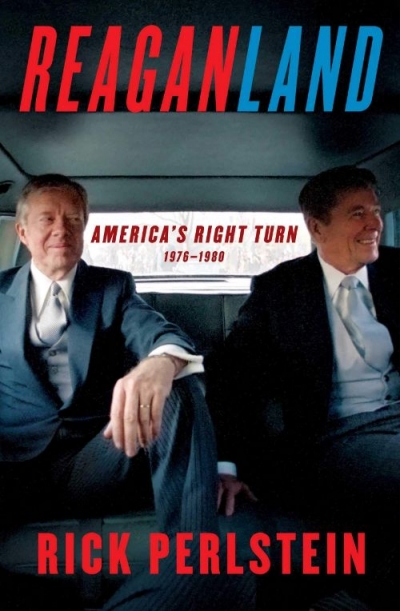Reaganland: America’s right turn 1976–1980
Simon & Schuster, $65 hb, 1,107 pp
Foundation stones
On 4 November 1980, Ronald Reagan was elected president of the United States. The former radio announcer, Hollywood actor, and governor of California (1967–75) beat Jimmy Carter by four hundred and forty electoral college votes. No contender had beaten an incumbent by that much since 1932, when in the midst of the Great Depression Franklin D. Roosevelt triumphed over Herbert Hoover. And much like FDR’s victory, Reagan’s win in 1980 permanently altered the course of US politics. The welfare state that had existed under both Democratic and Republican presidents was diminished, if not entirely dismantled. The religious right, previously a nonentity in American politics, gained major clout. And the economic tenets of neo-liberalism, dismissed as fringe ideas in previous decades, took centre stage.
In many ways, Americans are still living in the world Reagan created. After a series of electoral defeats, the Democratic Party shifted to the right. Deregulation and tax cuts marched hand in hand with divisive social issues such as abortion and gay rights. Even the election of Barack Obama in 2008 did little to halt these trends, of which Donald Trump may be the final capstone.
Continue reading for only $10 per month. Subscribe and gain full access to Australian Book Review. Already a subscriber? Sign in. If you need assistance, feel free to contact us.









